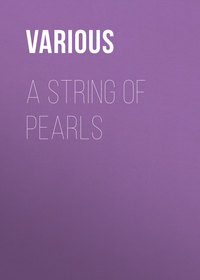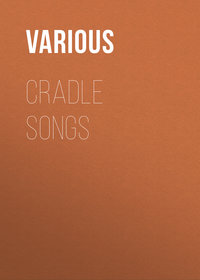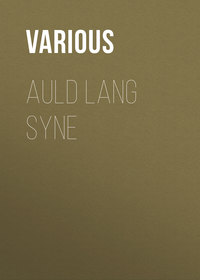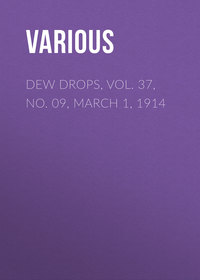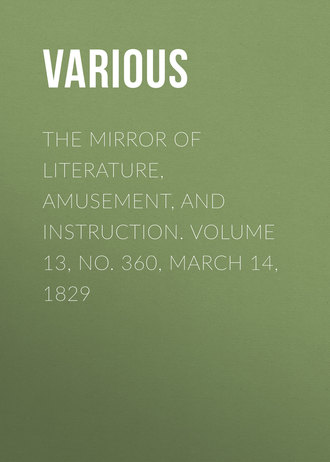
The Mirror of Literature, Amusement, and Instruction. Volume 13, No. 360, March 14, 1829
The only way in which I could control his tricks was by showing him to the panther on board, which excited his fears very strongly. I used to hold him up by his tail, and the instant he saw the panther he would become perfectly stiff, shut his eyes, and pretend to be dead. When I moved away, he would relax his limbs, and open one eye very cautiously; but if he caught a glimpse of the panther's cage, the eyes were quickly closed, and he resumed the rigidity of death. After four months' sojourn together, I quitted Jack off the Scilly Islands, and understood that I was very much regretted: he unceasingly watched for me in the morning, and searched for me in every direction, even venturing into the cabin; nor was he reconciled to my departure when my servants left the vessel at Gravesend.—Mag. Natural History.
NOTES OF A READER
COMPANION TO THE THEATRES
It must be owned that such a little book as this has long been wanted; for of all writing, that relating to the stage is the most diffuse. It is scattered about in biography, criticism and anecdote, not unfrequently of great interest, but occupying so much "valuable" time, that to condense it, or to pick the wheat from the chaff, is no trifling task. So much for the amusement which our "Companion" may yield to the Londoner: his utility as a cicerone or guide will be more obvious to our country friends, who flock in thousands to see and hear comedy and tragedy at this play-going season. A young girl comes to town to see "the lions," and, with her "cousin," goes to the opera, where one guinea is paid for their admission, or even more if they be installed. Two Londoners would buy their tickets during the day, and thus pay but 17s. Another party are dying to hear Braham sing, or Paton warble her nightingale notes among the canvass groves and hollyhock gardens of Drury Lane and Covent Garden; or to sup on the frowning woes of tragedy, the intrigues of an interlude dished up as an entremet, or a melodrama for a ragout; or the wit and waggery of a farce, sweet and soft-flowing like a petit-verre, to finish the repast. They go, and between the acts try to count the wax and gas, the feet, and foot lights till they are purblind; they return home and dream of Desdemona, sing themselves to sleep with the notes of the last song, are haunted with the odd physiognomy of Liston, and repeat the farce-laugh till the dream is broken. Next day it is mighty pleasant to read how many hundred people the theatre will hold, how many pounds they all paid to get there; and how the splendid pile of Drury Lane rose on the area of a cockpit: and how Garrick played Macbeth in a court suit, and John Kemble enacted the sufferings of Hamlet in powdered hair. Upon all these subjects the Companion is conversant, although he does not set up for Sir Oracle, or shake his head like Burleigh. In short, he tells of "many things," from the cart of Thespis and the Roman theatres, with their 6,000 singers and dancers, to the companies on the present stages.
Thus, we have the Origin of the Drama—Rise of the Drama in England—Early English Theatres—Descriptions of all the London Theatres—and a pleasant chapter on the Italian Opera. The Appendix contains pithy chronologies of the dramatists and actors, bygone and contemporary—origin of all the varieties of the drama—the topography of the stage and scenery, costume—expenses of the theatres—masquerades—play-bills and editions of plays, and a host of theatrical customs. In truth, the book is as full as the tail of a fine lobster, and will doubtless repay the time and research which its preparation must have occupied. There is also a, frontispiece of the fronts of the twelve London Theatres.
ORNITHOLOGY
Mr. James Jennings has favoured us with a copy of his Ornithologia; or the Birds, a poem; with copious Notes; &c. The latter portion is to us the most interesting, especially as it contains an immense body of valuable research into the history and economy of birds, in a pleasant, piquant, anecdotical style, without any of the quaintness or crabbedness of scientific technicality. Mr. Jennings's volume is therefore well adapted for presentation to young persons; whilst the knowledge which it displays, entitles it to a much higher stand than a mere book of amusement. To illustrate what we have said in its praise, the reader will find in the Supplement to the present Number, two or three of the most attractive Notes under "THE NATURALIST," which likewise contains Three Engravings of very curious subjects in other departments of Natural History.
CONVERSATIONS ON GEOLOGY
We have already spoken in favourable terms of this volume. It consists of 15 conversations of a family circle, comprising a familiar explanation of the Huttonian and Wernerian systems; the Mosaic geology, as explained by Penn; and the late discoveries of Buckland, Humboldt, Macculloch, and others. By way of specimen, we take a portion of a conversation which introduces the very interesting subject of the formation of coal:
Edward.—As the Huttonians evidently fail in proving coal to be produced by fusion, I hope the Wernerians may succeed better, for I should be sorry if so interesting a subject were left unexplained.
Mrs. R.—To understand their account, it will be requisite for you to recollect the process of the formation of bogs and marshes, as it is from these that Werner derives coal. What I told you, also, of the change produced on wood by being long exposed to moisture and kept from contact with the air, will be of use here, as wood, in all stages of change, is often found in coal-fields, in the same way as in peat-bogs.
Edward. That is a very strong circumstance in favour of the alleged origin.
Mrs. R. There are some facts, indeed, connected with this, which prove this origin beyond question, as you will admit, when I tell you that specimens of wood are often found partly converted into coal and partly unchanged, or petrified by some other mineral.
Edward. This will, at least, be direct proof that wood may be converted into coal.
Mrs. R. One instance of this kind is mentioned by Brand, in his "History of Newcastle," as having been brought from Iceland, by Sir Joseph Banks. Dr. Rennie, in his "Essay on Peat Moss," gives a still stronger example. In the parish of Kilsyth, he tells us, there was found, in a solid bed of sandstone, the trunk of a tree in an erect position, the indentations of the bark and marks of the branches being in many parts of it still obvious. It rose from a bed of coal below the sandstone, and the roots which reached the coal, as well as the bark for an inch thick round the trunk, were completely converted into coal, while the centre consisted of sandstone. This specimen I have myself seen in the parsonage garden of Kilsyth, and this description is most accurate. Sir George Mackenzie lately found a specimen precisely similar, in the face of a sandstone rock in Lothian, and I have seen numerous specimens of bamboos and reeds in the sandstone quarries of Glasgow, with the bark converted into coal, and the centre filled with sandstone.
Edward.—But would not this prove that sandstone, also, was derived from wood?
Mrs. R.—No: it would only prove that the centre had been destroyed and removed; for the sandstone is not chemically composed of vegetable substances, but the coal is.
Edward—Still, I cannot conceive by what process the conversion is effected.
Mrs. R. By a natural process, evidently; being a continuation of that which converts mosses and marshes into peat. Nay, it is supposed not to stop at the formation of coal, but, by a continuation of the causes, the coal becomes jet, and even amber. The eminent chemist, Fourcroy, in proof of this, mentions a specimen in which one end was wood, little changed, and the other pure jet; and Chaptal tells us, that at Montpellier there are dug up whole cart-loads of trees converted into jet, though the original forms are so perfectly preserved that he could often detect the species; and, among others, he mentions birch and walnut. What is even more remarkable, he found a wooden pail and a wooden shovel converted into pure jet.
Edward. Then I suppose, from all these details, that coal might be formed artificially, by imitating the natural process.
Mrs. R. Mr. Hatchett made many ingenious and successful experiments with this design, and Dr. Macculloch has more recently succeeded in actually making coal. One of the strongest instances of the process, is the existence of a great quantity of wood only half converted into coal, at Bovey, near Exeter; this has been much discussed by the geologists; but there is a bed of coal found at Locle, on the continent, which is said to have been formed almost within the memory of man, though I have not yet seen any good account of it.
Altogether, we have been much gratified with these Conversations. As a hint, en passant, we remind the editor of such an oversight as that at p. 350-1, "Order in which the strata lies in the Paris basin."
THE IDLER
There were many newspapers in the room, but there was nothing in them. There was a clock, but it did not seem to go; at least, so he thought, but after looking at it for a very long time he found it did go, but it went very slowly. Then he looked at his watch, and that went as slow as the clock. Then he took up the newspapers again one after the other very deliberately. He read the sporting intelligence and the fashionable news. But he did not read very attentively, as he afterwards discovered. Then he looked at the clock again, and was almost angry at the imperturbable monotony of its face. Then he took out his pocket-book to amuse himself by reading his memorandums, but they were very few, and very unintelligible. Then he rose up from his seat, and went to the window; and looked at the people in the street; he thought they looked very stupid, and wondered what they could all find to do with themselves. He looked at the carriages, and saw none with coronets, except now and then a hackney-coach. Then he began to pick his teeth, and that reminded him of eating; and then he rang the bell, which presently brought a waiter; and he took that opportunity of drawling out the word "waiter" in such lengthened tone, as if resolved to make one word last as long as possible.—Rank and Talent.
THE BATTLE OF GIBEON
VERSES ILLUSTRATIVE OF MARTIN S JOSHUA"For every battle of the warrior is with confused noise and garments rolled in blood but this with burning and fuel of fire."—ISAIAH ix. 5.
From Gilgal's camp went forth, at dead of night,The host of Israel: with the rising sunThey stood arrayed against the Amorite,Beneath the regal heights of Gibeon,Glorious in morning's splendour! Lebanon,Dim in the distance, reared its lofty head;Light clouds o'erbung the vale of Ajalon,And the Five Armies, by their monarchs led,Not to mere mortal fight, but conflict far more dread.How beautiful, at matin's early prime,Valley, and mountain, and that city fair!Magnificent, yet fearfully sublime,In few brief hours the scene depicted there!Below the battle raged, and high in airThe gathering clouds, with tempest in their womb,A supernatural darkness seem'd to wear;As heralding, by their portentous gloom,Victory to Israel's host, her foes' impending doom!Upon a jutting crag, below the heightWhere stands the royal city in its pride,The ark is rested! in the people's sightThe priests and Joshua standing by its side;Awhile the chief the sea of battle eyed,Which heaved beneath:—in accents undismayed,"Sun, stand thou still on Gibeon!" he cried,"And thou, O Moon, o'er Ajalon be stayed!"And holiest records tell the mandate was obeyed.Look on the horrid conflict; mark the streamOf lurid and unnatural light that falls,Like some wild meteors bright terrific gleam,On Gibeon's steep and battlemented walls;Her royal palace, and her pillared halls,Seeming more gorgeous in its vivid blaze!While o'er proud Lebanon the storm appals,In jagged lines the arrowy lightning plays,Soften'd to Israel's sight by intervening haze.But o'er the Amoritish camp the cloudBursts in its fury! on the race abhorredThe parting heavens, as from a pitchy shroud.Their desolating hail-storm's wrath out-poured,More vengeful in its ire than Israel's sword!Thus was deliverance unto Gibeon shown;And by the fearful battle of the Lord,The army of the Amorites o'erthrown,And the almighty power of Israel's God made known.Made known by marvels awfully sublime!Yet far more glorious in the Christian's sightThan these stern terrors of the olden time,The gentler splendours of that peaceful night,When opening clouds display'd, in vision bright,The heavenly host to Bethlehem's shepherd train,Shedding around them more than cloudless light!"Glory to God on high!" their opening strain,Its chorus, "Peace on earth!" its theme Messiah's reign!Bernard Barton's New Year's Eve, &c.MAKING ACQUAINTANCE
What could be more natural than for Mr. Jackson to say to Dr. Smith, "I am going to call on Markham?" And what could be more natural than for Dr. Smith to say, "I will go with you, and you may introduce me?" So then Markham's friend, Jackson, leaves his card, and Jackson's friend, Dr. Smith, leaves his card too.—Rank and Talent.
GENTLEMEN'S FASHIONS
We read much of the luxurious effeminacy of the old Romans, their fantastically curled hair, their favourite robes, &c.; but what will posterity think of some of the modes of puppyism in our times, when they read in a chronicle of fashion, dated 1829, that gentlemen wore elegant drab cloth opera manteaux lined with scarlet velvet, and confined at the collar with a gold chain! In another dress, the waistcoat is directed to be made of "a very beautiful white embroidered velvet;" "some young men have appeared at balls with blue dress gloves embroidered with white;" "the system of the cravat is to form the organization of linen on the breast," the very "march" of foppery; "cloaks of the gentlemen lined with plush silk of celestial blue;" "at balls our young exquisites sport pocket-handkerchiefs of fine lawn, with a hem as broad as their thumbs; the corners only are embroidered:" "shoes tied with a small rosette;" "a young gentleman now suffers his hair to grow, has it curled, and parted on the left side of the forehead," &c. &c.—This out-herods Herod.
PICTURE OF LONDON
A new edition of this very useful and attractive volume has just appeared, re-edited by Mr. Britton, who, by his extensive architectural knowledge, as well as by his popular style of imparting that knowledge, is calculated to produce a better "Picture of London" than any other writer within our acquaintance. The introduction is, of course, the most novel part of this edition, and as it enables Mr. Britton to embody much authentic information on the public works now in progress, we have abridged a few of these details, which will be found in a Supplement published with the present Number. The Picture of London was, we believe, first printed in 1806; and the extensive patronage which it has enjoyed during twenty-two years has been well deserved by its progressive completeness.
THE SELECTOR; AND LITERARY NOTICES OF NEW WORKS
RANK AND TALENT
By the Author of Penelope, or Love's Labour LostIn our last volume we devoted nearly six of our columns to an outline of the predecessor of the present work, or the novel of Penelope. We there stated our opinion of the author's talents in a peculiar style of novel-writing—a sort of mixture of satire and fashion, without the starchness of the one, or the silly affectation of the other—abounding in well-drawn pictures of real life, free from caricature, and teeming with home-truths, in themselves of such plainness and ready application, as to make precept and example follow on with near approaches to probability and truth.
The author's forte unquestionably lies in this species of writing, and his "Rank and Talent" will, we think, bear us out in this opinion. The story or canvass of the novel is simple, and well prepared for his sketches and finished portraits of character. They belong to fashionable and middle life, and the conceits and eccentricities, as well as the straightforward integrity of their stations are illustrated with peculiar force. Sound moral and knowledge of the world are occasionally introduced with great tact, for the author is no stranger to the inmost workings and recesses of the human heart; and he adapts these lessons, and dovetails them with the narrative, in a clever and agreeable style.
The outline of the story may be briefly told. The Hon. Philip Martindale has an action brought against him, at the assizes, for the false imprisonment of one Richard Smith, as a poacher; although the object of the defendant was a beautiful girl residing with the defendant. Clara Rivolta is rudely cross-examined as a witness; whilst the plaintiff's case is conducted by Horatio Markham, an intelligent young barrister, whose parents reside in the town where the action is tried. The cousin of the defendant, Mr. John Martindale, an eccentric old gentleman who builds an abbey for his titled relative to occupy, whilst he himself lives in a cottage on the estate; seeks an acquaintance with Markham. These parties reside at Brigland, and Philip Martindale, a dissipated lover of the turf, who is dependent on his capricious cousin for his supplies; and Horatio Markham, the hero, are thus introduced. Then we have a country curate of the higher order, together with his loquacious half; which are excellent portraits.
John Martindale is one of those eccentric beings—half-aristocrat, and half-liberal, which are more rare in society than they were fifty years since; and upon this curious compound turns the narrative. Clara Rivolta and her mother, Signora Rivolta, the wife of Colonel R. quit their native Italy, and visit Brigland, where old Martindale, on the discovery, acknowledges the Signora as the fruit of an early imprudence on the continent, and finally leaves them a large fortune. Clara is married to Markham, and Philip Martindale, afterwards Earl of Trimmerstone, marries a gay, giddy girl, who elopes with a perfumed puppy of the first fragrance.
The round of the earl's dissipation is but a sorry picture of the prostitution of rank; but the connexion leads us into a succession of scenes of fashionable life, which are vividly drawn, as are two or three of their adjuncts,—a popular west-end preacher, an anti-nervous physician, the dandy already mentioned, a noble gambler, and a rich city knight and his aspiring family—all of which are to the life.
Our extracts must be detached from the narrative; but they may serve to illustrate the felicitous vein in which the characters are drawn.
The means by which Signora Rivolta is discovered by Martindale, is well managed. One morning after the old gentleman had been amusing his visiters with some Italian views, Mr. Denver, the curate, introduced to Mr. Martindale with great parade Colonel Rivolta, whom he described as having recently made his escape from the continent, where he was exposed to persecution, if not to death, on account of his political opinions. The reverend gentleman then proceeded to state, that the colonel had previously to his own arrival in England sent over his wife and daughter, whom he had committed to the care of Richard Smith; that with them he had also transmitted some property, which old Richard had invested for their use and benefit; that unfortunately the very first night of the colonel's arrival at Brigland, the cottage in which Richard Smith dwelt had been robbed by a gipsy; that in consequence of that event the poor old man had been so seriously alarmed, that he had been totally unable to attend to any thing, and that he had died, leaving this poor foreigner in a strange land not knowing how to proceed as to the recovery of his little property. After an interview, in which Martindale promises the colonel his assistance, the latter was rising to take leave, when his eye was arrested by a print which Mr. Martindale held in his hand, and which he had unrolled while he was talking. As soon as the colonel saw the picture, he recognised the scene which it represented, and uttered an ejaculation, indicative of surprise and pleasure. Mr. Martindale then, for the first time, observed the print, and noticed its subject; he also looked upon it with surprise, but not with pleasure; and then he asked the stranger if that scene were familiar to him, with very great emotion the colonel replied:—"That scene brings to my recollection the happiest day of my life."
For a few seconds the party were totally silent; for the clergyman and the foreigner were struck dumb with astonishment at the altered looks of the old gentleman, and were surprised to see him crushing the picture in both hands. He then, as if with an effort of great resolution, exclaimed:—"And it brings to my recollection the most miserable day of my life."
The agitation of the old gentleman abated, and he replied: "I thank you for your kindness, sir, but my sorrow arises from self-reproach. I have inflicted injuries which can never be redressed." He hesitated, as if wishing, but dreading to say more. Then changing the tone of his voice, as if he were about to speak on some totally different subject, he continued addressing himself to Colonel Rivolta:—"I presume, sir, you are a native of Genoa, or you are very familiar with that city." "I was born," replied the foreigner, "at Naples; but very early in life I was removed to Genoa, that I might be engaged in merchandize; for my patrimony was very small, and my relations would have despised me, had I endeavoured by any occupation to gain a livelihood in my native city." "Then you were not originally destined for the army?" "I was not; but after I had been some few years in Genoa, I began to grow weary of the pursuits of merchandize, and indeed to feel some of that pride of which I had accused my relations, and I thought that I should be satisfied with very little if I might be free from the occupation of the merchant; and while I was so thinking, I met by chance an old acquaintance who persuaded me to undertake the profession of arms, to which I was indeed not reluctant. And so I left my merchandise, and did not see Genoa again for nearly two years. It was then that I was so much interested in that scene which the picture portrays; for in a very small house which is in the same street, directly opposite to that palace, there lived an old woman, whose name was –"
The attention of the old gentleman had been powerfully arrested by the commencement of the Italian's narrative; and he listened very calmly till the narrator arrived at the point when he was about to mention the name of the old woman who lived opposite to the palace in question: then was Mr. Martindale again excited, and without waiting for the conclusion of the sentence, interrupted it by exclaiming: "Ah! what! do you know that old woman? Is she living? Where is she?—Stop—no—let me see—impossible!—Why I must be nearly seventy—yes—are you sure? Is not her name Bianchi?"
To this hurried and confused mass of interrogation, the colonel replied that her name was Bianchi; but that she had died nearly twenty years ago, at a very advanced age, being at the time of her death nearly ninety years of age. Hearing this, the old gentleman assumed a great calmness and composure of manner, though he trembled as if in an ague; and turning to the astonished clergyman, who was pleasing himself with the anticipation of some catastrophe or anecdote which might form a fine subject for town-talk, he very deliberately said:—"Mr. Denver, I beg I may not intrude any longer on your valuable time. This gentleman, I find, can give me some account of an old acquaintance of mine. The inquiries may not be interesting to you. Make my best compliments to Mrs. Denver."
When this good man was withdrawn, Mr. Martindale requested the stranger to be seated; and unmindful of the guests whom he had left to amuse themselves and each other, he commenced very deliberately to examine the foreigner concerning those matters which had so strongly excited his feelings.



